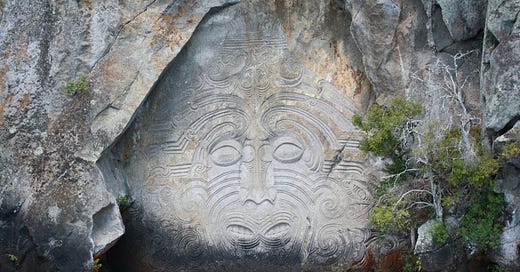Content is Window Dressing
To address colonisation in education, it's pedagogy that needs to shift
A Quote
Apart from some formal teaching and learning that took place between tohunga (experts) and tauira (students) in the whare wānanga (traditional houses of learning) context, ako1 is not bound by age, gender, or social status. Learning and teaching is inclusive, extensive, cooperative, reciprocal, and obligatory. Metge (1984)2 refers to the all-encompassing nature of ako as “education through exposure” (p. 3). She describes teaching and learning as “informal, semi-continuous, embedded in the ongoing life of the community, open and inclusive”3
A Thought
Like many nations, New Zealand is grappling with the legacy of colonisation. It is forcing a reckoning in many contexts, education included, and this is leading to a re-evaluation of ‘how things are done’.
This is good. There is no doubt that how schools are is not a neutral nor natural state, but instead a cultural one that has favoured one group over others.
Just look at the description of the teaching / learning process described above. I struggle to see what’s described evident in many schools: things are predominantly bound, exclusive, narrow, individualistic, formal, and separated from life outside school. The paradigm schools operate in make this experience more likely than not.
And it’s going to take more than adding a few texts by Maori authors, content from Te Ao Maori, or the use of a few Maori words, for the legacy of colonisation to be addressed in education. I’m not saying don’t include that stuff - it all helps and should definitely be part of the plan. What I am saying is that if that’s all that’s done, it’s mere window dressing.
Content is not pedagogy.
What should also be happening is a pedagogical change:
bound > unbound
exclusive > inclusive
narrow > all-encompassing
individualistic > cooperative and reciprocal
formal > informal
separated from life > embedded in life
My gut instinct tells me the descriptors on the right are good for everyone. That’s got to be better, even though than the ones on the left have been damn good for a privileged group of someones.
An Action
I have no expertise in this area. So, if you’re in my position, go talk to those who know stuff and listen. Then pick one thing you can bring into your pedagogy, because listening carries with it the ethical obligation to act.
If you know about Te Ao Maori, use it to drive your pedagogy. For instance, if I was in your shoes, my interest would be piqued by the quote by Metge, “education through exposure”.
Ako - to teach / to learn: “Ako as a Maori pedagogical process is highlighted in Te Ao Maori as being an interrelationship, not only between learners and teachers, but within the range of relationships of whānau, hapū (sub-tribal groupings), and iwi (tribal groupings).”
Metge, J. (1984). Learning and teaching: He tïkanga Maori. Wellington, New Zealand: Department of Education.
You’ll find this quote in the book Decolonising Research: Indigenous Storywork as Pedagogy. It’s from the chapter ‘Whānau storytelling as Indigenous pedagogy’ by Leonie Pihama, et al.




